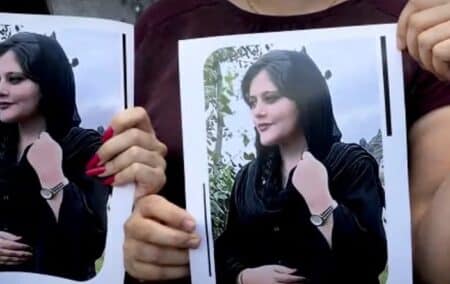The United States has said it will ease internet curbs on Iran to counter Tehran’s clampdown on protests sparked by the death of a woman who had been taken into police custody for not wearing her hijab ‘properly’.
The US announcement comes as activists in Iran expressed concern about widespread internet outages, and people having difficulty gaining access to social media.
Secretary of State Anthony Blinken: ‘We are going to help make sure the Iranian people are not kept isolated and in the dark.’
The BBC reports that the relaxation of software controls will allow American tech firms to expand their business in Iran.
Billionaire Elon Musk said on Twitter that he would activate his satellite internet firm, Starlink, to provide internet services to Iran in response to Blinken’s announcement.
According to the BBC, Starlink provides internet services via a huge network of satellites and is aimed at people who live in remote areas who cannot get high-speed internet.
At least 35 people have been killed in the worst unrest in Iran for years, triggered by the death of Mahsa Amini (22). She fell into a coma last week, hours after morality police had arrested her for allegedly breaking headscarf rules. Officers reportedly beat Amini’s head with a baton and banged her head against one of their vehicles. The police have said there is no evidence of any mistreatment and that she suffered ‘sudden heart failure’.
Anti-government protests continued for an eighth straight night on Friday, while pro-regime rallies also took place in Tehran and other cities.
While spreading across much of the country, many of the early protests were concentrated in western Iran, particularly areas with large Kurdish populations, the group Amini belonged to.
Internet monitoring group NetBlocks said Instagram and WhatsApp – two of the major communication tools that Iran usually allows – had been restricted.
The two Meta-owned apps have millions of Iranian users and have become increasingly popular after authorities blocked other platforms in recent years, including Facebook and Twitter.
Telegram, YouTube and TikTok have also periodically been closed down.
The BBC reports that President Ebrahim Raisi has said he would not allow the country’s security to be ‘threatened’, and that while his government would listen to criticism over Ms Amini’s death, it would not be influenced by ‘rioting’.

